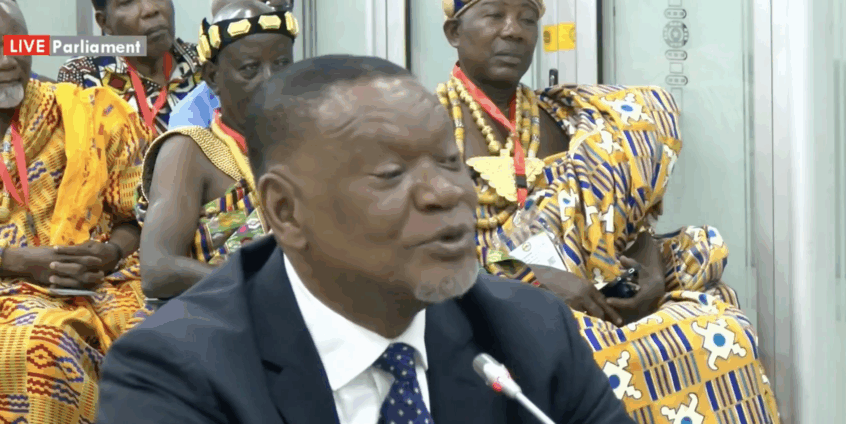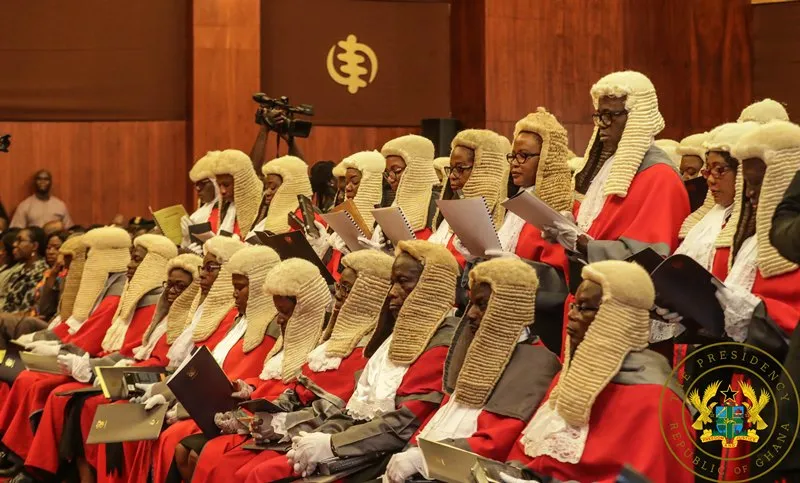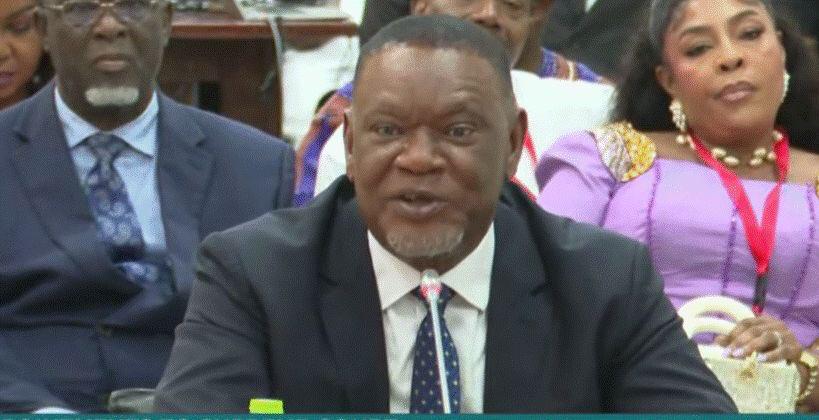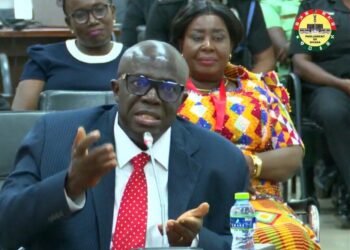Justice Senyo Dzamefe, a distinguished nominee for the Supreme Court of Ghana, has underscored a progressive outlook on improving access to justice, addressing judicial workload, and enhancing the rule of law’s contribution to national development.
The insightful exchange highlighted the complexities of balancing constitutional mandates with the evolving demands of a rapidly developing nation.
A central point of inquiry, raised by a Member of Parliament representing Bawku Central, pertained to geographical access to the highest court. The MP passionately articulated the challenge faced by citizens in remote areas, such as Bawku, who must travel considerable distances to Accra to access justice at the Supreme Court.
Drawing parallels with the decentralisation of the Court of Appeal to Kumasi and Tamale, the legislator proposed the idea of a “northern bench” for the Supreme Court.
Justice Dzamefe’s response indicated an encouraging openness to such an initiative. He affirmed that while Ghana maintains a singular Supreme Court, it could indeed accommodate several branches, just as the Court of Appeal and High Courts do.
This nuanced perspective suggests a willingness to consider structural reforms that could significantly alleviate the burden on litigants from distant regions, making justice more proximate and accessible for all Ghanaians.

The discussion then shifted to the current composition and workload of the Supreme Court. The nominee confirmed that the Court currently comprises 13 judges. The MP introduced a key point from a reported 2024 letter by the Chief Justice, which advocated for increasing the average size of the Court to 20 judges.
The Chief Justice’s rationale, as presented, cited significant delays in the administration of justice and an overburdened judiciary struggling with case backlogs, opinion writing, and conference obligations.
Justice Dzamefe, while stating he had not personally seen the letter, readily agreed with the premise. He underscored that the Constitution does not cap the number of Supreme Court judges, implying flexibility for expansion.
“The framers of our law, the constitution, know why they didn’t put a limit on the number of supreme court judges; it’s not capped. I keep saying that the law is always evolving. Maybe there is a reason. So, as long as the constitution doesn’t cap the number of judges, I am for it.”
Justice Senyo Dzamefe
Judicial Performance
Furthermore, Justice Dzamefe lauded the performance of Ghana’s Supreme Court judges despite the existing pressures. He highlighted the Court’s extensive responsibilities, encompassing original, appellate, and supervisory jurisdictions, as well as appeals from the National House of Chiefs.
He described the Supreme Court as “virtually becoming a daily court,” affirming that judges are indeed overloaded. This acknowledgement reinforced the argument for augmenting their numbers to facilitate expedited case resolution and uphold the fundamental right of access to the Supreme Court.

Judicial Efficiency
A crucial aspect of the hearing revolved around the broader impact of judicial efficiency on national development. The MP emphasised the direct correlation between a robust rule of law, efficient justice delivery, and investor confidence, which in turn fuels economic performance.
Justice Dzamefe unequivocally concurred with this assertion. He articulated that the swift resolution of legal disputes instils confidence in the system, attracting both local and foreign investment. Conversely, prolonged legal battles erode trust and deter economic activity.
He argued that if a smaller number of judges leads to delays, an increase in their ranks is a logical step, provided there is clear justification. This pragmatic stance aligns judicial reform with Ghana’s economic aspirations, positioning the judiciary as a critical enabler of prosperity.
Finally, the dialogue addressed the financial implications of appointing more judges, acknowledging that such an expansion would place an additional burden on the taxpayer.
Justice Dzamefe, demonstrating a keen awareness of fiscal realities, presented a compelling cost-benefit analysis.
He conceded that “nothing good in life comes without a cost” and that increasing the number of judges and courts would indeed incur more expenses.

However, he posited that these costs are outweighed by the significant benefits: quicker disposal of cases, enhanced confidence and trust in the judiciary among both citizens and the investor community, and overall societal contentment.
His steadfast support for increasing judicial capacity, not just at the Supreme Court but across the entire court system, underscored a belief that investment in the judiciary is an investment in national stability and growth.
READ ALSO: Fuel Prices Drop as Energy Levy Suspension Eases Pressure at Pumps



















